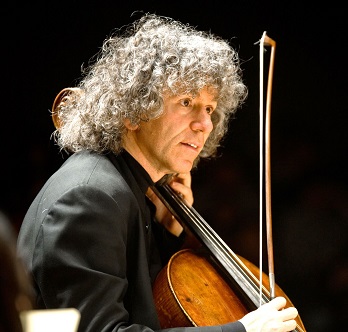 United Kingdom Bartók, Sibelius, Mustonen, Schumann, Kurtág, Richard Rodney Bennett and Schubert: Ian Bostridge (tenor), Steven Isserlis (cello), Olli Mustonen (piano). Wigmore Hall, London, 30.9.2019. (AK)
United Kingdom Bartók, Sibelius, Mustonen, Schumann, Kurtág, Richard Rodney Bennett and Schubert: Ian Bostridge (tenor), Steven Isserlis (cello), Olli Mustonen (piano). Wigmore Hall, London, 30.9.2019. (AK)

Bartók – Seven pieces from For Children (1908-10)
Sibelius – Malinconia, Op.20
Mustonen – Taivaanvalot (2017)
Schumann – ‘Belsazar’; ‘Die feindlichen Brüder’; ‘Die beiden Grenadiere’ (1840)
Kurtág – From Signs, Games and Messages (1997-2003), Steven Isserlis 60 (2018)
Richard Rodney Bennett – ‘Tom O’Bedlam’s Song’ (1961)
Schubert – ‘Auf dem Strom’ (1828)
It is surprising that this concert was not sold out a long time before the actual date. In fact, in spite of a good turn-out, there were quite a few empty seats in the auditorium. Three highly respected and well-known artists seemed to have under-attracted the audience which would have filled the Hall several times over for individual recitals by any of them. It is true that the date of this concert happened to coincide with the second evening of Rosh Hashanah (the Jewish New Year) but the slightly disappointing audience appeal cannot be explained with this coincidence.
I speculate that the programme did not help by offering a few lesser known works as well as disjoint between the compositions. If pressed, I could offer a detailed argument about how there was a link between various numbers and how they all combined into a satisfactory whole. But it looks like the performers themselves might have had some problems in deciding how to present coherence.
The order of their programme, carefully presented in the beautifully produced and very informative programme notes, was completely changed possibly just shortly before the event. We were all provided with a separate piece of paper with the correct order of the numbers. Ushers were going round the auditorium to hand out these slips and an announcement was made from the stage instructing all to make sure to get a copy. It transpired that not only was the order changed but an additional item too was included.
I hazard the guess that cellist Steven Isserlis chose the programme and hosted his distinguished fellow artists. The rationale of the programming therefore is likely to have been resulted from what and whom Steven Isserlis likes. He played almost in all items; the concert could have been titled as ‘Isserlis and friends’. Isserlis visibly loves playing the cello, he loves being on stage and his audience loves him. Win-win all round but, for me, Isserlis’s participation in Schubert’s ‘Auf dem Strom’ was an over-kill. Schubert composed this song for voice, piano and obbligato horn. In his highly informative programme note Isserlis explains that the horn part was played by the cellist Joseph Linke at a memorial concert for Schubert ten months after the song was premiered by the composer and, adds Isserlis, the horn part suits the timbre and tessitura of the cello well. Maybe so, but the tonal colour of the horn brings an important extra dimension which I truly missed in this otherwise beautiful performance.
The concert opened with the additional item which was not included in the programme evidently until the 11th hour. It is fortunate that I know Bartók’s pieces titled For Children, otherwise I would have thought that the seven pieces here performed were very romantic and rhythmically very free. Olli Mustonen’s interpretation was spell-binding but just a bit over the top for these folk song arrangements. Having been brought up in Hungary where For Children is the staple diet for all piano students, it was a new experience for me to see an artist playing these short pieces from music.
Mustonen’s Taivaanvalot (Heavenly lights) received its UK premier now but was composed in 2017. The combination of voice, piano and cello works well (and sounded well) and standing between the cellist and the pianist, tenor Ian Bostridge offered the middle ground between his esteemed colleagues. Mustonen and Isserlis are highly physical artists while Bostridge is more inward although very expressive. Some of the notes allocated to him in this twenty-minute piece were a bit low for his tenor voice but he managed and sounded fine in the proper tenor register; particularly in his solo without any instruments shortly before the conclusion. The piece, described as ‘symphony for tenor, cello and piano’ feels just a tad too long although the text, taken from the Finnish Kalevala, mitigates the length.
I am sure that composer György Kurtág would have been very happy to hear Isserlis perform his compositions for solo cello. Isserlis gave his all to these pieces; it was an excellent introduction to Kurtág for those audience members who might have attended the concert because of Ian Bostridge’s presenting a few Schumann and Schubert songs (with great success).
Sibelius (cello and piano) and Richard Rodney Bennett (cello and tenor) were added to complete the unusual programme – or perhaps these two rarely performed compositions were chosen first – which certainly stretched as well as entertained the audience.
Agnes Kory